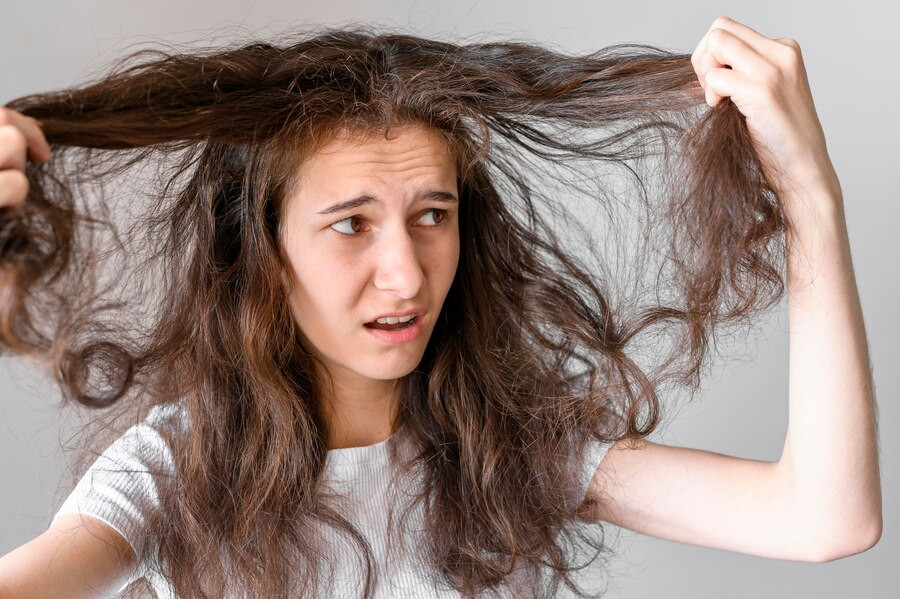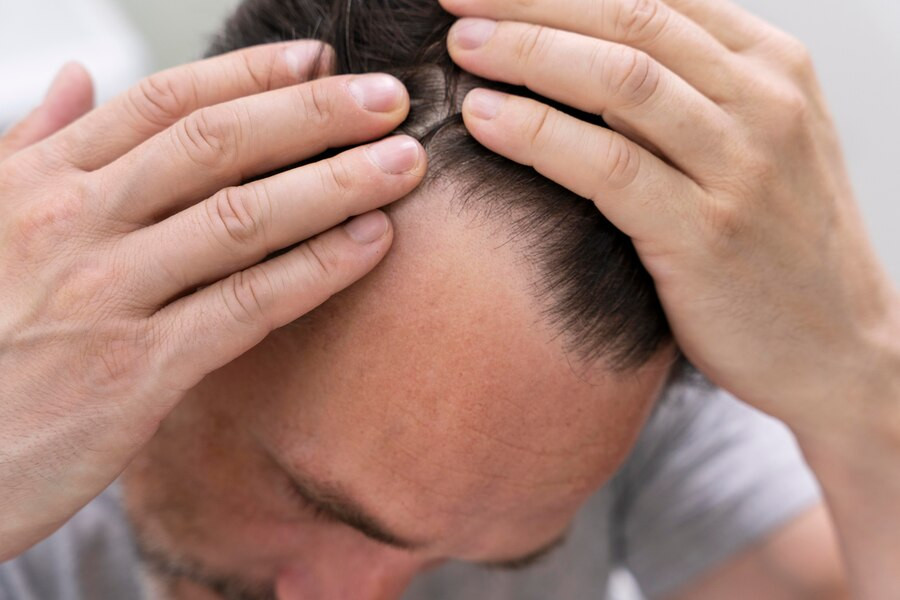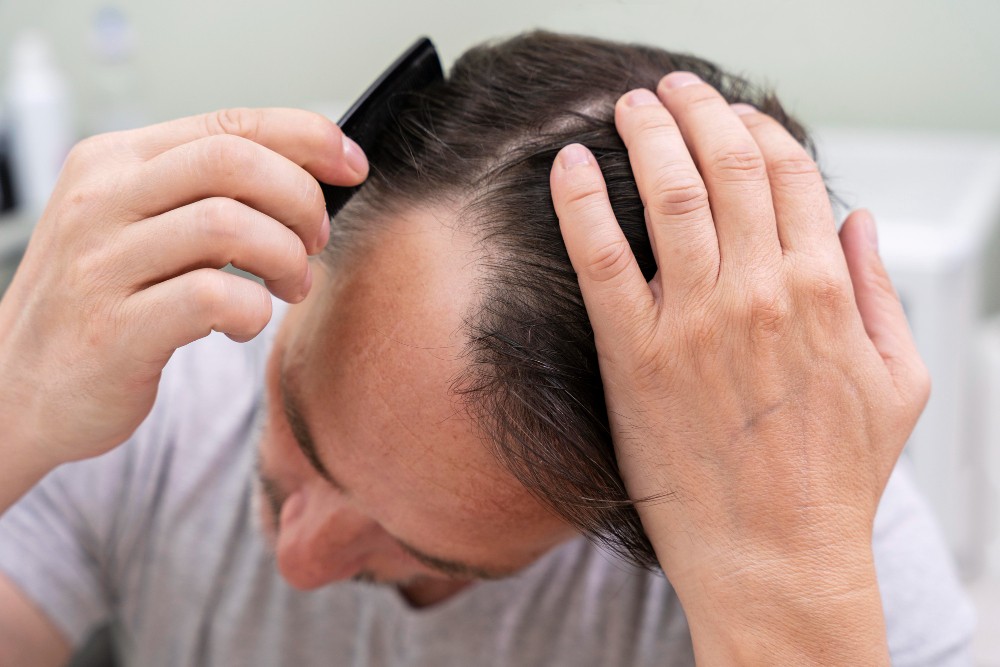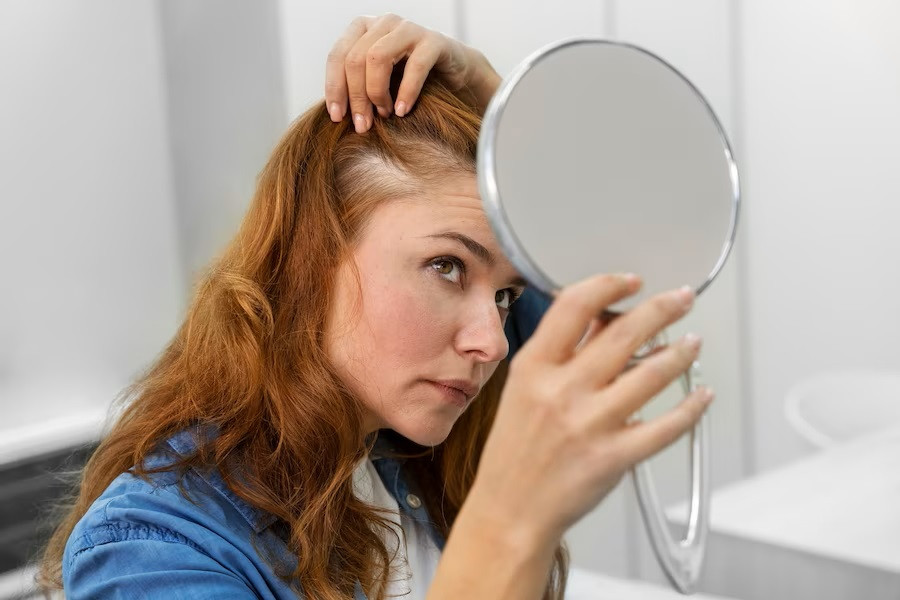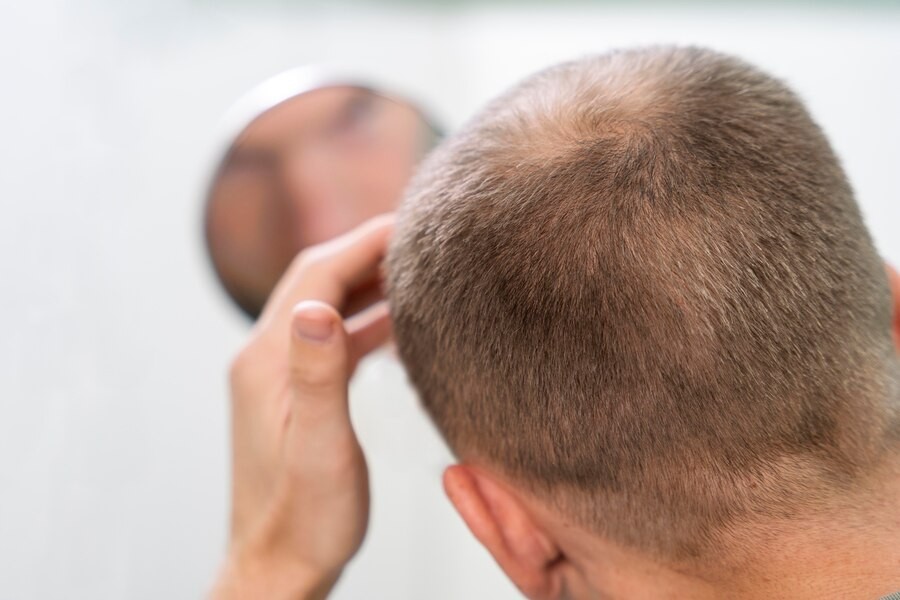Masalah rambut rontok bisa dialami oleh siapa saja, baik pria maupun wanita. Walaupun sebenarnya wanita cenderung lebih mudah menyadarinya karena memiliki rambut yang panjang.
Kerontokan rambut bisa disebabkan oleh banyak faktor, seperti genetika, hormon, stres, dan penyakit tertentu. Selain itu sebenarnya ada penyebab lain kerontokan rambut yang sering diabaikan yaitu kekurangan vitamin.
Kekurangan Vitamin Ini Dapat Menyebabkan Kerontokan Rambut
Kerontokan rambut dapat disebabkan oleh kekurangan nutrisi, penurunan berat badan tiba-tiba, rendahnya asupan kalori, dan obesitas. Kelebihan mengonsumsi suplemen vitamin dan mineral juga dapat mengganggu siklus pertumbuhan rambut dan menyebabkan rambut rontok.
Sebuah penelitian menunjukkan bahwa diet Mediterania, yang berfokus pada konsumsi makanan yang kaya antioksidan dan antiperadangan, dapat membantu merangsang petumbuhan rambut dan mengurangi rambut rontok.
Berikut beberapa vitamin yang berperan dalam kerontokan rambut:
Vitamin D
Vitamin D memainkan peran penting dalam siklus pertumbuhan rambut, yaitu pertumbuhan folikel rambut baru. Kekurangan vitamin D dapat menghambat proses tersebut sehingga rambut jadi mudah rontok dan menipis.
Beberapa penelitian menunjukkan bahwa orang dengan alopesia areata sering kali memiliki kadar vitamin D yang lebih rendah dibandingkan dengan orang yang tidak mengalami kondisi ini.
Baca Juga: Tips Merawat Jenis Rambut Kombinasi
Vitamin B7 (Biotin)
Vitamin B7 atau dikenal juga dengan istilah biotin, terkenal dalam perannya menjaga kesehatan rambut, kulit, dan kuku. Biotin membantu memperkuat struktur keratin, protein utama yang membentuk rambut, kulit, dan kuku. Keratin yang kuat akan membentuk rambut, kulit, dan kuku yang kuat serta tidak mudah rapuh.
Kekurangan biotin dapat menyebabkan rambut menjadi rapuh, mudah patah, dan rontok. Rambut akhirnya bisa menjadi lebih tipis dan kering.
Vitamin B12
Vitamin B12 diperlukan untuk sintesis DNA dan pembentukan sel darah merah yang sehat. Sel darah merah ini kemudian bertanggung jawab mengangkut oksigen dari paru-paru ke seluruh tubuh, termasuk kulit kepala dan folikel rambut.
Apabila sel darah merah tidak diproduksi dengan baik karena kurangnya asupan vitamin B12, maka aliran oksigen ke folikel rambut juga ikut terganggu. Hal ini menyebabkan rambut menjadi mudah rapuh dan rontok.
Vitamin C
Vitamin C sangat penting untuk produksi kolagen, yang berfungsi memberikan kekuatan dan elastisitas pada rambut, serta melindunginya dari kerusakan dan patah.
Kekurangan vitamin C dapat mengganggu produksi kolagen, menyebabkan rambut menjadi lebih rentan terhadap kerusakan dan patah. Sebaliknya, asupan vitamin C yang cukup mendukung produksi kolagen yang optimal, sehingga rambut tetap kuat dan elastis.
Baca Juga: 5 Penyebab Kerontokan Rambut yang Abnormal
Vitamin A
Selama ini vitamin A mungkin memang lebih dikenal dalam menyehatkan mata. Namun ternyata vitamin A juga berperan penting dalam kesehatan rambut.
Vitamin A diperlukan untuk pertumbuhan sel, termasuk sel rambut. Perannya sangat penting dalam proses regenerasi sel dan mendukung kesehatan folikel rambut.
Kekurangan vitamin A dapat mengganggu produksi sebum sehingga menyebabkan kulit kepala menjadi kering dan bersisik. Kulit kepala yang kering berpotensi menyebabkan rambut menjadi kering, rapuh, dan mudah rontok.
Zat Besi dan zinc
Meskipun zat besi dan zinc bukanlah vitamin, namun kedua mineral ini berperan penting menjaga kesehatan rambut. Kekurangan zat besi dapat menyebabkan anemia yang dapat mengurangi suplai oksigen ke folikel rambut.
Sedangkan zinc sangat penting untuk proses protein dan perbaikan jaringan, termasuk jaringan rambut. Kekurangan mineral ini dapat mengganggu proses pertumbuhan dan perbaikan sel rambut.
Selain itu, zinc juga berperan besar dalam menjaga kelenjar minyak di kulit kepala agar berfungsi dengan baik. Kelenjar minyak yang sehat akan membantu menjaga kelembapan kulit kepala dan mencegah kekeringan serta masalah ketombe.
Jadi, untuk mencegah kerontokan rambut sebaiknya cukupi kebutuhan vitamin dan mineral yang telah disebutkan di atas. Apabila kerontokan rambut semakin parah, Anda bisa berkonsultasi dengan dokter atau melalui aplikasi Ai Care yang dapat diunduh di App Store atau Play Store.
Mau tahu informasi seputar penyakit lainnya? Cek di sini, ya!
- dr Nadia Opmalina
Sherri Gordon (2024). Which Vitamin Deficiency Causes Hair Loss?. Available from: https://www.health.com/which-vitamin-deficiency-causes-hair-loss-8638100
Jenna Fletcher (2024). Can a vitamin D deficiency cause hair loss?. Available from: https://www.medicalnewstoday.com/articles/321673
Jennifer Fisher, MMSc, PA-C (2024). Vitamins, minerals, and hair loss: Is there a connection?. Available from: https://www.health.harvard.edu/diseases-and-conditions/vitamins-minerals-and-hair-loss-is-there-a-connection
Jennifer Huizen (2024). Does biotin help hair growth?. Available from: https://www.medicalnewstoday.com/articles/319427
Amanda Barrell (2023). All you should know about biotin deficiency. Available from: https://www.medicalnewstoday.com/articles/320462
Cleveland Clinic (2023). Collagen Won’t Hurt Hair Growth, But It Probably Won’t Help Either. Available from: https://health.clevelandclinic.org/collagen-for-hair-growth


